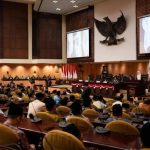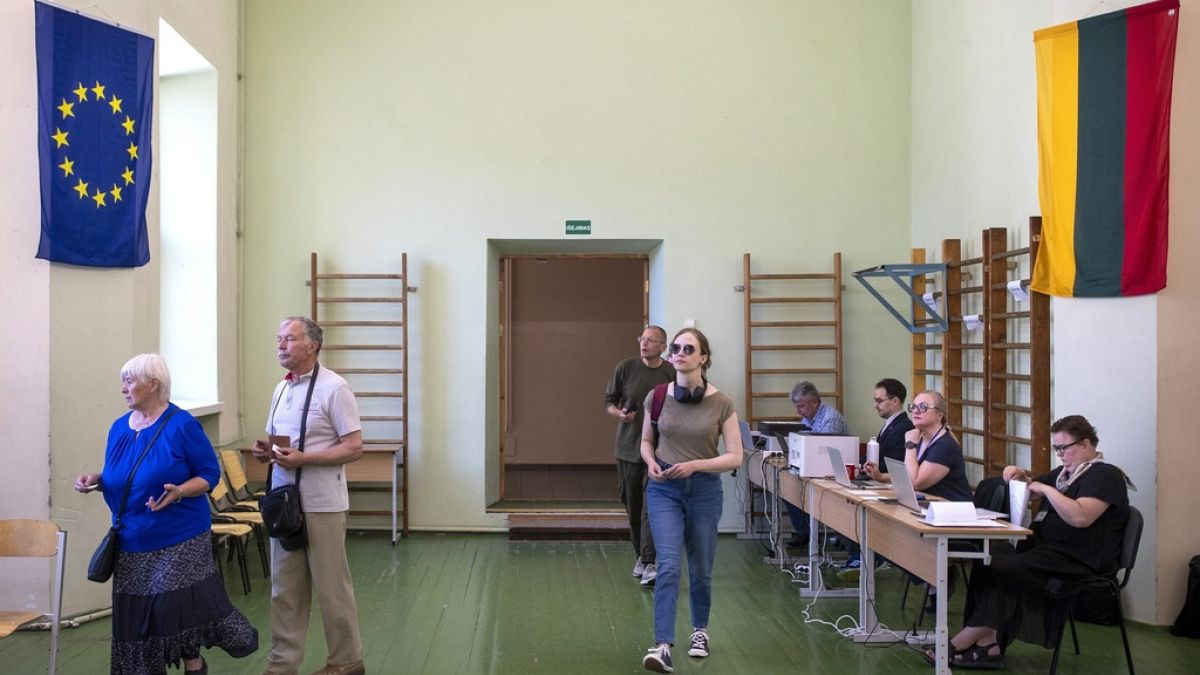Lithuania’s presidential election has garnered significant attention due to the country’s strategic position on NATO’s eastern flank. Incumbent President Gitanas Nausėda, a moderate conservative known for his support of Ukraine, is facing off against Prime Minister Ingrida Šimonytė in the second round of voting. Nearly 2 million citizens are eligible to vote in this crucial election, with results expected to be announced soon after the polls close.
Both Nausėda and Šimonytė have been vocal critics of Russia and Belarus, with concerns mounting about potential Russian sabotage in the region. Recent reports of Russia potentially revising its territorial waters in the Baltic Sea have raised alarms, prompting calls for a strong response from Lithuania’s foreign minister. Mysterious attacks on Lithuanian and Polish facilities have further fueled speculation of Russian interference, with former officials warning that such incidents could escalate as part of Russia’s broader geopolitical strategy.
As a NATO member, Lithuania’s role on the alliance’s eastern flank is crucial, especially in light of the ongoing conflict in Ukraine. The next president will be tasked with overseeing foreign and defense policy decisions that impact not only Lithuania but also the broader region. Both candidates have maintained strong stances against Moscow’s aggression, aligning with the country’s foreign policy priorities and emphasizing the importance of unity within the alliance.
The election turnout has been robust, with early voters in Vilnius eager to cast their ballots. Nausėda, who led in the first round with 44% of the votes, is seen as the favorite to win against Šimonytė. The outcome of the election will be closely watched for its broader geopolitical implications, especially as tensions continue to rise in the Baltic region. The winner will need to navigate complex international dynamics while upholding Lithuania’s commitment to NATO and defending against potential threats from neighboring countries.
The presidency in Lithuania holds significant weight in shaping the country’s foreign and defense policies, particularly given its position as a key player in NATO. With ongoing tensions in the Baltic region and concerns about Russian interference, the election of the next president will have far-reaching implications for the security and stability of the region. Both Nausėda and Šimonytė have emphasized the importance of standing firm against external threats and maintaining a united front with NATO allies in the face of increasing challenges.
As Lithuanians eagerly await the election results, the outcome of the presidential race will set the course for the country’s future diplomatic relations and defense strategies. The winning candidate will need to navigate complex international dynamics, uphold Lithuania’s commitments to NATO, and address growing concerns about potential Russian interference in the region. The election is not just a domestic affair for Lithuania but a critical moment with significant implications for regional security and stability.









